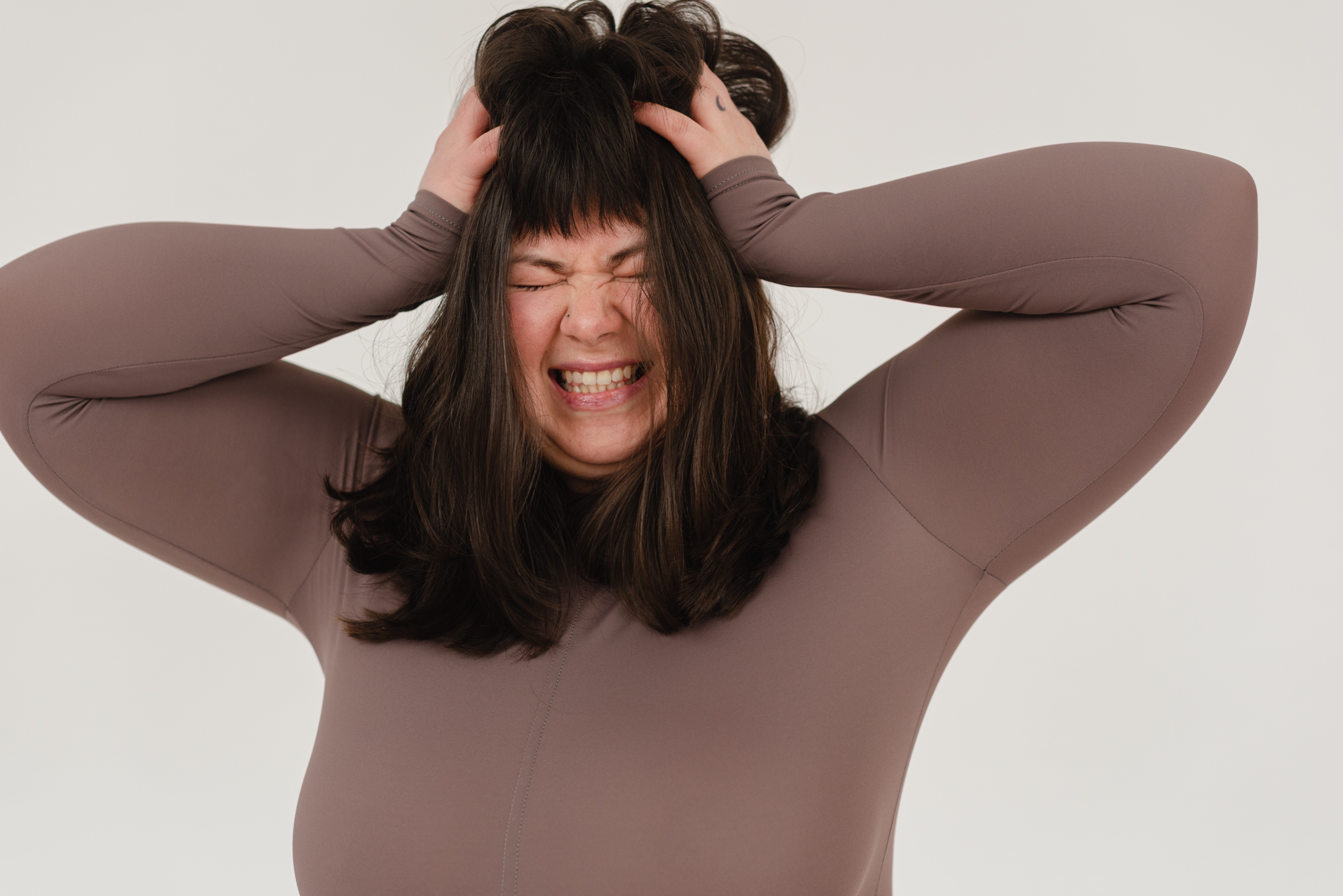What are the signs that you need hormone replacement therapy (HRT)


Hormone replacement therapy (HRT) is a treatment option recommended for females with hormone imbalances to get rid of the symptoms of menopause in women. The purpose of hormone replacement therapy is to replace the low levels of hormones that naturally occur as you approach menopause.
After menopause, oestrogen production declines, resulting in oestrogen deficiency, leading to symptoms like vaginal dryness, hot flashes, painful sex, and mood swings.
Menopause is a natural phase and the symptoms subside gradually. However, sometimes the symptoms persist and may require hormonal replacement therapy. This article explains all the information you require before starting hormone replacement therapy.
Hormone replacement therapy involves medication to counter low hormone levels; bioidentical hormone replacement therapy may include:
Progesterone
Oestrogen
Combination of both oestrogen and progesterone.
HRT was popularized in the 1960s for the first time, but due to controversies, the therapy declined. Later in the 1990s, the HRT was adopted as a tool to stay youthful after menopause. Due to uncertain success, many people in the 21st century hesitated to adopt hormonal replacement therapy. Still, recent studies have proved that hormonal replacement therapy has more benefits and fewer risks in women above 60 if carried out within ten years of menopause.
Many women having low oestrogen levels after menopause choose hormonal replacement therapy to lessen the menopause symptoms like:
Osteoporosis
Dementia
Stroke
Hot flashes
Hair loss
Mood swings
Thinning hair

Sometimes women enter menopause with mild to moderate symptoms. If the symptoms are severe and affect the daily work routine, you should take them seriously and may think about hormone therapy. The signs that you need HRT for better health include:
Hot flashes are the most common symptoms that menopausal women experience. Low levels of oestrogens affect the hypothalamus, the body's thermostat. This makes women prone to even the slightest temperature changes. Due to low oestrogen levels, the hypothalamus cannot judge the body's temperature and can't predict whether you are feeling cold or hot. This confusion results in inefficient temperature regulation and leads to hot flashes.
Some women may experience low sex drive and libido. Women after menopause find it difficult to be sexually active and aroused. Moreover, a lack of oestrogen makes the vagina dry and thin, possibly making intercourse painful.
Normal circulating levels of oestrogen help lubricate the vagina and prevent its dryness. Oestrogen also controls the elasticity and thickness of the vaginal walls. Decreased oestrogen levels lead to vaginal atrophy, which thickens the vaginal walls and causes inflammatory reactions. Inflammatory changes in the vagina lead to burning and itching.
Oestrogen imbalance in the body directly affects the hypothalamus, which controls heat regulation. Low oestrogen levels lead to blood vessel expansion and increased heat waves. This causes sweating and redness in different areas of the skin. Night sweats are common in women having hormonal imbalances during menopause.
Although mood swings are common and may occur for several reasons, during menopause, mood swings are often expected and may last for a few days because of hormone fluctuations. During this mood swing, a female may experience exhaustion, and it can even be challenging to perform daily activities.

Some techniques and lifestyle changes like morning walks, exercise, and nutrition may lessen the severity of mood swings. However, only lifestyle changes are insufficient; hormonal replacement therapy can be inevitable in certain circumstances.
Women with menopause are at high risk of developing osteoporosis. Oestrogen has a role in preventing the bone-thinning process and maintains the typical structure of a healthy bone. Certain medicines are available to prevent osteoporosis, but HRT can be a practical approach to eliminate the bone-thinning process and other nasty symptoms of early menopause.
Women tend to gain weight as they age. One of the common reasons is the lack of oestrogen, which affects women's metabolism. If you find it hard to lose weight despite a healthy and controlled diet, you can choose HRT to optimize the healthy metabolic rate of the body.
There could be multiple causes of insomnia, but according to research, most women experience insomnia during or after menopause. Hormonal imbalance can affect the sleep-wake cycle badly. Insomnia itself can lead to multiple disease conditions like:
Memory loss
Mental illness
Depression
Lethargy
Increased risk of cardiovascular diseases and diabetes.
Increased risk of an accident while driving.
Women may experience hair loss during menopause because of altered oestrogen levels in the body. Other factors influencing hair loss include nutritional deficiency, age, genetics, and illness.
Generally, you can judge that menopause is causing hair loss because it can onset suddenly. Hormonal replacement therapy is the best solution to hair loss and other symptoms.
Low oestrogen levels during menopause may weaken the muscles of the urethra, which causes urinary tract infections. The urethra is a narrow tube between the kidney and the external opening which controls urination. It can lead to a condition called urinary stress incontinence. It causes dribbling or urine while laughing, coughing, or sneezing and it makes it difficult for women to reach the bathroom in time.
Although hormonal imbalances mostly cause different symptoms in women because of a natural physiological process of menopause, men are also prone to such hormonal issues. There is no fixed stage in men like menopause, but testosterone levels in men generally start to decrease after 30. So, hormonal replacement therapy can be effective in men in boosting energy and activity and preventing multiple diseases by ruling out hormone deficiency.
The following symptoms in men may indicate hormonal replacement therapy is necessary:
Exhaustion and fatigue
Low energy
Difficulty concentrating
Lack of mental clarity
Weight gain
Decreased libido
Anxiety, depression, and mood swings
Thinning of hair
Insomnia
Loss of muscle mass
Sluggish and lack of interest
Difficulties with sexual desire and erectile dysfunctions
Dry skin.
Hormones control our physiology. Hormone imbalance affects many body functions and can make it difficult to perform routine tasks. Hormone replacement therapy not only alleviates symptoms of discomfort and menopause but also improves a person's lifestyle. The general benefits of hormone replacement therapy include the following:
HRT's prime purpose is to eliminate unwanted menopausal symptoms in women. HRT helps ease vasomotor symptoms like hot flashes and sweating. It is also best for urinary and vaginal symptoms like vaginal dryness, painful sex, and stress-induced urine incontinence.
Contrary to risks, numerous studies have confirmed that bioidentical hormone therapy, if started at the perfect time during menopause, helps strengthen cardiovascular health by preventing blood clots. However, performing a complete heart disease exam each year is best if you are on HRT.
Some women experience severe depression and anxiety during the transition phase of menopause. Lack of oestrogen may lead to anxiety, depression, and other mental orders. Studies confirm that oestrogen given through skin patches helps ease depression. Shop HRT patches at Welzo here.

Bone fractures, osteoporosis, and bone loss are expected during menopause in women. It has been confirmed through clinical trials that oestrogen source in the form of skin patches helps strengthen bone density and structure.
Muscle mass decreases with age, and fat deposition may overtake. Hormone replacement therapy prevents excessive loss of muscle mass and ensures muscle strength during the menopausal phase.
Besides the physical benefits of HRT, oestrogen-based HRT can prevent some neurological diseases like Parkinson's disease and Alzheimer's disease.
Hormone replacement therapy protects against diseases, ensures health, and uplifts daily life. One often gets tired, drained, and stressed because of the burden of routine work. HRT has the following effect on a person's lifestyle:
Boosts self-esteem
Increased energy
Increased frailty
Increased libido
Hormone replacement therapy HRT is essential in getting rid of menopausal symptoms. It helps ease vaginal discomfort, night sweats, hot flashes, mood swings, and decreased libido, and prevents breast cancer and other problems. Research has also proved that rectified oestrogen levels improve osteoporosis symptoms. Hormonal replacement therapy improves the agility and mental health of women with menopause or women with primary ovarian insufficiency.
Men may experience menopause-like symptoms in which testosterone levels decrease. Men may also need hormone replacement therapy if the symptoms of lethargy and lack of interest appear after 40. Testosterone levels in men start to reduce by 1% annually after age 30. Testosterone maintains agility, self-esteem, energy, and mental health in men. If hormone replacement therapy is adopted, many-age related changes can be reversed. Most men feel younger, happy, and revitalized.
HRT treatment options can be systemic or local. Systemic hormones are given to your circulatory system and are distributed equally in the body. Locally some patches and implants are also used for the controlled delayed release. These include:
Progesterone only products
Oestrogen only products
Combination of oestrogen and progesterone
Combination of oestrogen with other products.
Hormonal products are available in different forms. The most common are:
Injections
Skin care creams or sprays
Implants
Vaginal creams or rings.
Although HRT is safe if the proper protocol is followed. the Women's Health Initiative published a report in 2002 that if no care is taken in performing HRT, it can do worse than good. Advanced studies and research has ruled out most of the fears, however; there are some risks associated with HRT:
Some trial studies suggest that HRT is associated with breast, uterine, and ovarian cancer due to oestrogen-only or combination products. However, the risk of cancer is low and only occurs if proper protocol and precautions are not followed.
HRT may increase blood clotting in older adults above 60 who had menopause at least ten years ago. This may lead to stroke and cardiovascular problems. So, it is recommended to use a minimum dose for a short period in older adults.
Elevated oestrogen level in the body increases the cholesterol level in the gall bladder. This build-up of cholesterol may lead to gallstone formation. It is advised to follow the rational dose of HRT.
Avoid HRT if you have the following:
Vaginal bleeding problems
Breast, uterine, or ovarian cancer.
Liver disease
Bleeding disorders
Cardiovascular issues
Allergy to specific medications.
There is no time limit or duration. However, it is best to consult the doctor about the course of therapy. You can stop HRT once the symptoms of menopause vanish after a few years. It is advised to take HRT once the signs are there.
If you are planning to stop HRT, do it gradually. The tapering end is recommended in which the dose of HRT is progressively decreased each day and discontinued at the end. Sudden discontinuation may result in a relapse of menopausal symptoms in the short term.
There are minor risks associated with HRT, which can be managed by following the prescribed protocol of the licensed doctor. Here are a few tips that can help avoid hormone replacement therapy risks.
Finding the best product available and choosing the best delivery method.
Minimize the dose and increase the interval between two quantities.
Seek follow-up care regularly and go through a complete physical examination each year.
Adopt a healthy lifestyle and exercise regularly
Consult the physician if symptoms relapse during therapy.
If you have conditions or risks that don’t allow you, choose hormone replacement therapy. Some non-hormonal options might help you get rid of menopausal symptoms.
Black cohosh supplement
Gabapentin or selective serotonin reuptake inhibitors (SSRIs) supplementation
Acupuncture treatment
Diet management, like edamame, soy milk, and other soy milk.
Purified pollen.
Men and women may experience hormonal imbalances in old age. Menopause is women's primary cause of oestrogen level depletion, which may lead to discomfort and unwanted symptoms. Hormone replacement therapy isn't all good or bad. It has excellent results if care is taken towards precautions and protocol. Discuss individual symptoms with your doctor and follow the advised therapy plan. Make sure to stay connected to your doctor during therapy to avoid the risks and get the desired outcome.
View our range of HRT products here or, to take our Menopause Test, click here.
If you are looking to evaluate your hormone levels, take one of our private at-home blood tests:
Female Hormone Test | Male Hormone Test | Sports Hormone Test










Plus get the inside scoop on our latest content and updates in our monthly newsletter.